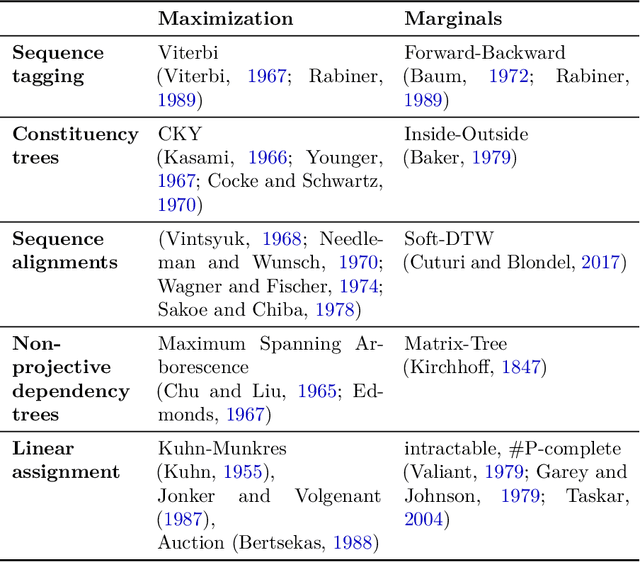Caio F. Corro
Discrete Latent Structure in Neural Networks
Jan 18, 2023



Abstract:Many types of data from fields including natural language processing, computer vision, and bioinformatics, are well represented by discrete, compositional structures such as trees, sequences, or matchings. Latent structure models are a powerful tool for learning to extract such representations, offering a way to incorporate structural bias, discover insight about the data, and interpret decisions. However, effective training is challenging, as neural networks are typically designed for continuous computation. This text explores three broad strategies for learning with discrete latent structure: continuous relaxation, surrogate gradients, and probabilistic estimation. Our presentation relies on consistent notations for a wide range of models. As such, we reveal many new connections between latent structure learning strategies, showing how most consist of the same small set of fundamental building blocks, but use them differently, leading to substantially different applicability and properties.
 Add to Chrome
Add to Chrome Add to Firefox
Add to Firefox Add to Edge
Add to Edge